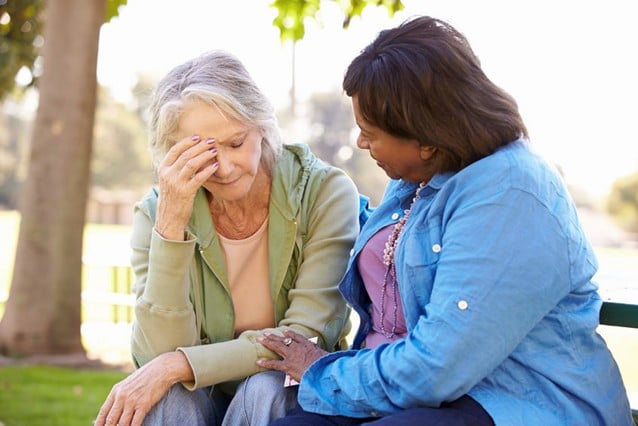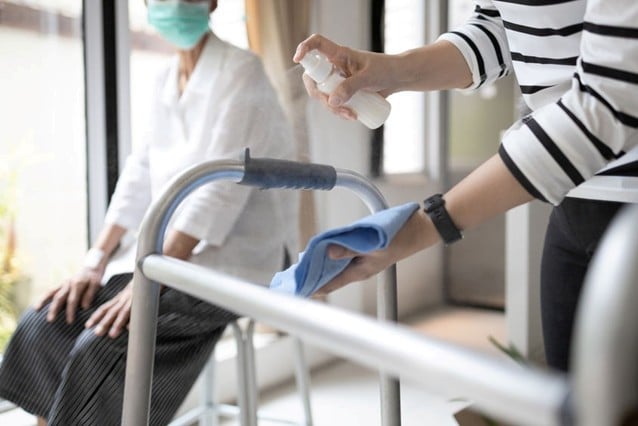
Senior Flu Prevention & Care for the Elderly
March 11, 2020
Protecting Seniors with Alzheimer’s or Dementia From COVID-19
April 5, 2020The federal government is currently taking urgent steps to protect Americans from the spread of coronavirus. It is a dangerous and highly infectious virus which causes respiratory distress. It has already spread to many towns and cities across the United States.
Coronavirus is particularly dangerous for seniors, because they have a higher risk of a severe infection which can impair their breathing. The heightened risk amongst seniors is the reason why the Centers for Disease Control and Prevention has advised anyone older than 80 or with major illnesses to take extra precautions.
Fortunately, there are some simple steps anyone can take to protect senior citizens. In this post, I’ll explain what coronavirus is and how you can help us protect older Americans.
What Is Coronavirus?
Coronavirus is a group of infectious diseases which cause respiratory illnesses, like the flu. The symptoms of coronavirus typically include dry cough, tiredness, and fever. However, more severe cases can make it extremely difficult to breathe, which can be fatal.
COVID-19 is a new strain of coronavirus which has not been previously seen in humans. It was first identified in the Wuhan, China in late 2019 and has since spread to virtually every other country on the planet.
Because COVID-19 is relatively new, researchers are still performing epidemiological and clinical investigations to understand how it works. However, we do know that:
- The most common symptoms are fever, dry cough, runny nose, and shortness of breath.
- COVID-19 is primarily spread through respiratory droplets that are produced when an infected person coughs or sneezes.
- COVID-19 can also be spread by contaminated hands, surfaces or objects, although this is not the main way the virus spreads.
- Some COVID-19 carriers are asymptomatic, which means they show no symptoms. This is one of the reasons why reducing the spread of COVID-19 is so difficult.
- People with compromised immune systems, impaired lung function, diabetes, heart disease and other chronic illnesses are more likely to suffer severe symptoms. This means they are more likely to die from COVID-19.
We also know that COVID-19 is much more dangerous to older Americans. Figures from the CDC show that even though seniors only make up 31% of cases, they account for 41% of hospitalizations, 53% of ICU admissions, and 80% of deaths. These figures clearly highlight the importance of protecting older Americans from COVID-19.
Protecting Our Senior Citizens
Fortunately, there are several simple steps we can all take to protect senior citizens. If we all follow these steps, we can greatly reduce the risk of passing the virus on and endangering their lives.
Do Not Visit Locations Where Seniors Live
If a loved one lives at a nursing home, long-term care facility, or retirement village, don’t visit them unless it is essential. The same goes for visiting seniors in their homes. This will reduce your risk of unwittingly passing the virus on.
This is a particularly important strategy because of the nature of COVID-19. Carriers of the virus may not experience symptoms for the first few days, despite being highly infectious. Others may be asymptomatic, which means they may be infecting others without even realizing it.
When You Do Visit, Follow the Rules
Should you decide that you really need to see an older relative, comply with all the restrictions that a facility has. They may have special rules for:
- The number of people allowed to visit at once
- Wearing of face masks and other protective equipment
- Hand washing
- Reduced visiting hours
- Taking your temperature to be admitted
These rules are in place to keep you, facility staff, and residents safe, so it is important to do your part.
Use Social Distancing
The CDC recommends that everyone practice social distancing. This reduces the risk of human to human transmission of COVID-19. Social distancing includes:
- Staying home as much as possible
- Staying at least 5 feet away from other people
- No touching, handshakes, hugging or kissing
- Avoiding the use of paper money (use cards instead)
- Avoiding public gatherings
- Keeping visitors to a minimum
- Eliminating trips unless they are essential
- Disinfecting surfaces in your household
- Practicing good hygiene (more on that below)
Practice Good Hygiene
Good hygiene will reduce the risk of infection from contaminated hands, surfaces or objects. To practice good hygiene, you should:
- Wash your hands regularly with soap and water for at 20 seconds
- Avoid touching your face
- Use hand sanitizer regularly
- If you sneeze, do it into a tissue which is immediately discarded or into your elbow
- Increase the available fresh air by opening a window
- Clean all household surfaces daily with EPA-registered disinfectants, paying close attention to frequently used objects like door knobs, mobile phones, wallets, and work passes
Use Technology to Communicate
Seniors are one of the groups most at risk of social isolation. COVID-19 may increase their risk of feeling isolated as they have less chances to talk to other people and will receive less visitors.
Try using technology to help seniors remain connected with the outside world. Video chat is one of the best options, as they can see the face of their loved ones and have a normal conversation. However, you can also use text messages, phone calls, and social media to stay in regular contact.
Check on Your Neighbors
If you have neighbors who are seniors, give them a call or knock on their door to see if they are ok. They might be too scared to leave their home because of the virus. If that is the case, they may be running short on food or feeling lonely because they are lacking human contact.
You could offer to help them by performing some errands or give them your phone number so they can call you for a chat if they feel lonely. However, always remember to practice social distancing when helping them.
If You Are Sick, Stay at Home
If you do find yourself feeling unwell, self-isolate immediately. Likely, it will be a cold or flu. However, it may be the coronavirus. If you are in one of the high-risk groups mentioned above, get tested for coronavirus as soon as possible.
If you have been in contact with someone who was diagnosed with coronavirus, you should also get tested immediately. If one person in a household tests positive for coronavirus, the entire household must self-isolate.
Thank you for reading this article about COVID-19. If you are interested in non-medical home care services with All Heart Home Care, contact us today at 619-736-4677 for a free in-home consultation.








